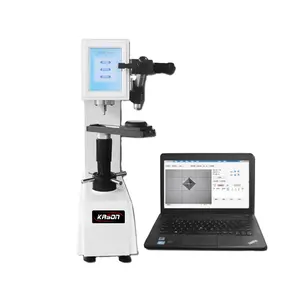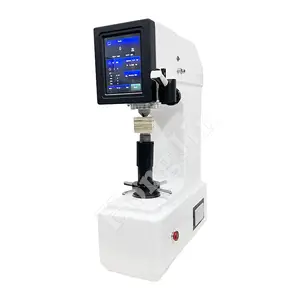Understanding the Universal Hardness Testing Machine
A universal hardness testing machine is an essential piece of equipment in material testing laboratories. It is designed to measure the hardness of materials, such as metals and plastics, through various testing methods, including Rockwell, Brinell, and Vickers. The versatility of these machines allows for a comprehensive analysis of hardness, which is crucial in quality control, research, and development in various industries.
Types of Universal Hardness Testing Machines
Universal hardness testing machines come in several forms, each specifically engineered to cater to different testing standards and requirements. Here are the most common types:
- Rockwell Hardness Testers: These machines provide quick and accurate measurements by applying a specific load and measuring the indentation depth.
- Brinell Hardness Testers: Suitable for testing larger samples, Brinell testers use a hard ball as an indenter to create a deeper indentation for measuring hardness.
- Vickers Hardness Testers: Known for their precision, Vickers testers use a diamond pyramid indenter to test hard materials and provide very detailed hardness readings.
- Leeb Hardness Testers: Portable and practical, Leeb hardness testers allow for on-site testing and are often used for large components and machinery.
Applications of Universal Hardness Testing Machines
Universal hardness testing machines have broad applications across various sectors, proving invaluable for material characterizations, such as:
- Quality Control: Manufacturers use these machines to ensure that their products meet the required hardness specifications, preventing defects.
- Research and Development: Engineers and researchers use hardness testers to evaluate new materials and coatings for performance and durability.
- Incoming Material Inspection: Industries often test incoming materials to verify compliance with established hardness standards before use in production.
- Field Testing: Portable options allow for easy testing of materials in situ, enabling timely decision-making on maintenance or repair.
Key Features of Universal Hardness Testing Machines
Investing in a universal hardness testing machine provides numerous advantages that enhance efficiency and accuracy in testing:
- Multi-Testing Capability: A single machine can accommodate multiple testing methods, saving time and space.
- Automated Systems: Many modern machines come with automation features, reducing human error and increasing the consistency of results.
- Digital Readouts: Advanced models provide digital displays that enhance readability and simplify result interpretation.
- Robust Design: Universal hardness testing machines are built to withstand rigorous operating conditions, ensuring longevity and reliability.
- Portability Features: Some compact models are designed for ease of transport, allowing for testing in remote locations.
In conclusion, a universal hardness testing machine is a vital asset for businesses engaged in manufacturing, quality control, and research. Its ability to accurately measure hardness through various methods makes it indispensable for ensuring product integrity and performance. By understanding the different types, applications, and features of these machines, businesses can make informed investments that cater to their specific needs.















































































































































































































